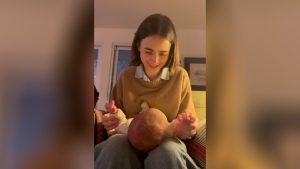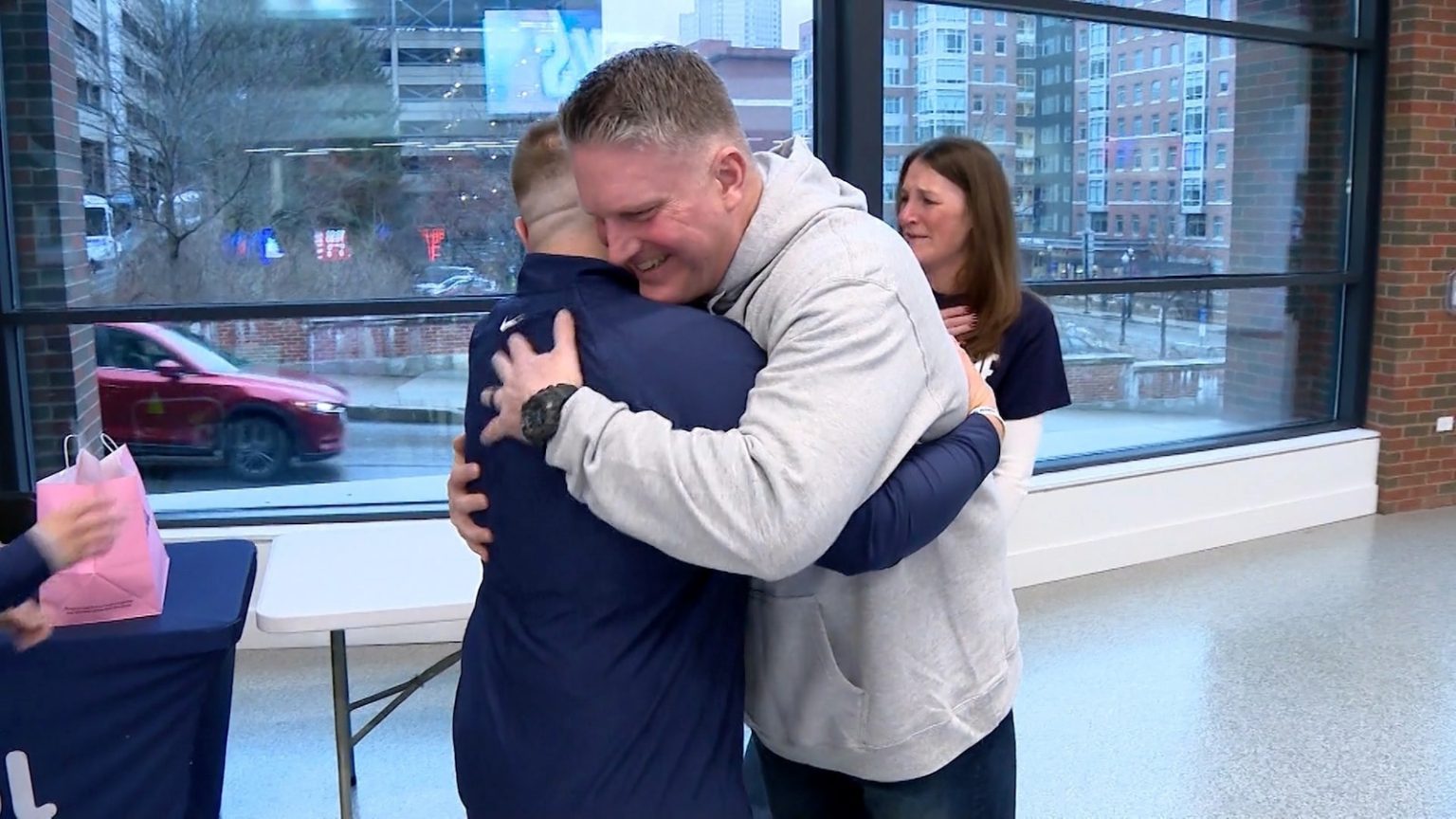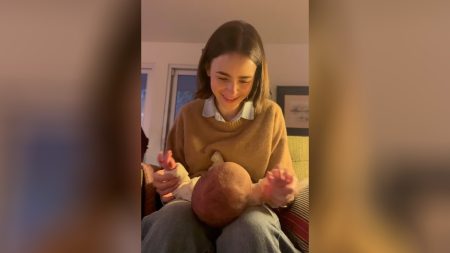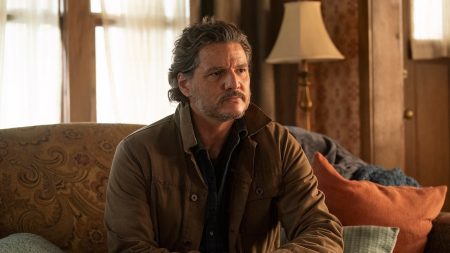A Father’s Fight for Life: The Heroic Actions of Duquesne’s Medical Staff
A Terrifying Moment at the Basketball Game
Last month, during a Duquesne women’s basketball game at the UPMC Cooper Fieldhouse, a dramatic and life-threatening incident unfolded. Ed Wesolowski, a father of three, collapsed after suffering a widow-maker heart attack, a condition notorious for its high mortality rate. His wife, Katie Wesolowski, recounted the harrowing experience to WTAE-TV, the ABC Pittsburgh affiliate. She described how she grabbed her husband’s face and noticed him shaking and turning blue, initially thinking he was having a seizure. However, deep down, she suspected something more severe. "Just remember seeing them bring the AED over, and I turned and looked, and they were doing chest compressions on him," she recalled, her voice filled with emotion.
The quick-thinking medical staff at the game sprang into action, saving Wesolowski’s life. Their response was nothing short of heroic, showcasing the importance of preparedness and training in such critical moments. The incident not only highlighted the fragility of life but also the impact of immediate medical intervention.
Understanding the Widow-Maker Heart Attack
A widow-maker heart attack occurs when the left anterior descending (LAD) artery, one of the three main coronary arteries, becomes blocked. This artery is crucial as it supplies blood to a significant portion of the heart muscle. The term "widow-maker" underscores its severity, as untreated cases often result in fatal outcomes. Heart attacks, in general, happen when a blood clot blocks one of the coronary arteries, disrupting blood flow to the heart.
Risk factors for such heart attacks include diabetes, a family history of premature heart disease, high blood pressure, high cholesterol, smoking, and occupational stress. Symptoms can vary but often include chest pain described as a tightness or pressure-like sensation, which may radiate to the neck, jaw, or shoulder. Other symptoms include shortness of breath, dizziness, or an upset stomach. Recognizing these signs is critical, as timely medical intervention can mean the difference between life and death.
In Wesolowski’s case, he recalled feeling a strange, warm, dizzy sensation that began in his feet and spread upward before he collapsed. His survival is a testament to the swift and skilled response of the Duquesne medical team.
The Medical Team’s Swift Response
The Duquesne basketball medical staff, though trained for such emergencies, had never encountered a real-life situation like this before. Yet, their instincts and training kicked in seamlessly. Dr. Ryan Nussbaum, the team physician, and athletic trainer Travis Moyer were part of the team that rushed to Wesolowski’s aid. "I think that’s when our instincts took over, with [assistant strength and conditioning coach Liz Lee] immediately grabbing the AED, [and athletic trainer Travis Moyer] and I just … running up there, because that’s what we’ve been trained to do," Dr. Nussbaum explained.
The team followed a well-rehearsed protocol, using an automated external defibrillator (AED) and performing chest compressions to restore Wesolowski’s heartbeat. Moyer later reflected on the situation, noting how everything unfolded as planned. "It was kind of a unique situation that it was a fan and not an athlete, but the protocol and the process is always the same, no matter who the patient is," he said. Their actions were nothing short of miraculous, saving Wesolowski’s life in a moment of profound crisis.
A Grateful Family’s Thanksgiving
After the incident, Wesolowski and his family expressed deep gratitude for the medical team’s actions. "How prepared they were to recognize the situation and know exactly what to do, and in a very tense moment, you know … I’m crazy thankful for all of that," Wesolowski said, reflecting on the events that transpired. His survival was not just a medical miracle but also a result of the team’s ability to remain calm and follow their training.
A week later, Wesolowski and his family returned to the UPMC Cooper Fieldhouse, the very place where his life had nearly slipped away. Before the game, he met the medical staff who had saved him, marking an emotional reunion. The encounter was a poignant reminder of the profound impact that trained individuals can have on someone’s life.
Duquesne honored its training staff that evening, recognizing their pivotal role in saving Wesolowski’s life. While the applause from the crowd was loud and heartfelt, it paled in comparison to the gratitude felt by the Wesolowski family. "I mean, because if it wasn’t for [them], and if all of those things [didn’t] come together at the right time, then, you know, it might have been a different story — but they were ready to go," Wesolowski said, his words a testament to the team’s heroism.
A Celebration of Life and Heroes
The incident serves as a powerful reminder of the importance of preparedness and the impact of trained professionals in emergency situations. The Duquesne medical staff’s actions that day were not just a display of skill and knowledge but also of compassion and dedication. Their ability to act swiftly and decisively ensured that Wesolowski could return to his family, creating a legacy of gratitude that extends far beyond the basketball court.
For the Wesolowski family, the experience has been life-changing. It has reinforced the value of cherishing every moment and appreciating the unsung heroes who work behind the scenes to save lives. As they look to the future, they do so with a renewed sense of hope and appreciation for the medical team that gave them a second chance.
The Lasting Impact of a Life Saved
In the end, Wesolowski’s story is one of survival, gratitude, and the enduring power of human kindness. It highlights the critical role that training and preparedness play in saving lives, especially in situations where every second counts. The Duquesne medical staff’s actions that day were nothing short of heroic, offering a shining example of how individuals can make a difference in the most unexpected ways.
As the Wesolowski family continues to rebuild and reflect on their journey, they do so with the knowledge that they are not alone. They are supported by a community that values life, compassion, and the courage to act in the face of adversity. In a world that often feels overwhelming, their story serves as a reminder of the beauty of human connection and the incredible good that can come from it.















